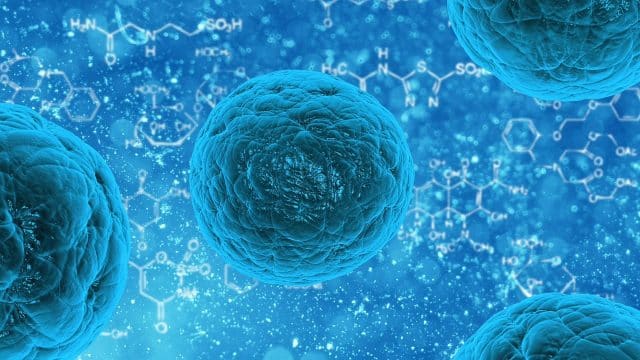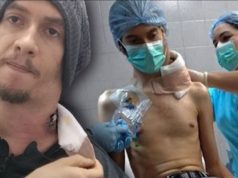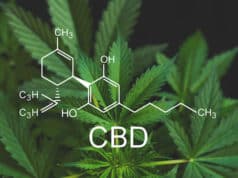 Although it sometimes feels like we are fighting a losing battle against cancer, researchers are constantly developing innovative ways to treat the disease. Emerging treatments in the field of immunotherapy have shown great promise in fighting cancers that were previously considered “untreatable.” One therapy in particular, called Apatone, has shown great efficacy in destroying cancer cells, and it may be changing the way alternative practitioners fight cancer.
Although it sometimes feels like we are fighting a losing battle against cancer, researchers are constantly developing innovative ways to treat the disease. Emerging treatments in the field of immunotherapy have shown great promise in fighting cancers that were previously considered “untreatable.” One therapy in particular, called Apatone, has shown great efficacy in destroying cancer cells, and it may be changing the way alternative practitioners fight cancer.
What is Apatone?
 Apatone is a combination of intravenous Vitamin C and K3 in a 100:1 ratio. The combination has been shown to cause a form of cell death called autoschizis. Research with Apatone goes all the way back to the 1990s, when scientists began to experiment with the combination therapy and saw that it destroyed cancerous cells. The destruction was so powerful and unique that the researchers knew it needed its own name, which is where the word “autoschizis” came from.
Apatone is a combination of intravenous Vitamin C and K3 in a 100:1 ratio. The combination has been shown to cause a form of cell death called autoschizis. Research with Apatone goes all the way back to the 1990s, when scientists began to experiment with the combination therapy and saw that it destroyed cancerous cells. The destruction was so powerful and unique that the researchers knew it needed its own name, which is where the word “autoschizis” came from.
Research with Apatone on tumor-bearing mice has shown that cancer growth was stopped or slowed in mice who received in vivo administration of the treatment. Their lifespan was also increased by 45.8%. Neither of the drugs administered alone had any affect on the mice, implying that it has to be the 100:1 ratio in order to be effective.
Studies also showed that mice treated with CK3 did not have any detrimental side effects or signs of toxicity in their normal organs and tissues.
How does Apatone work?
Cancerous cells have several unique characteristics. For instance, they are deficient in DNase activity, they contain low levels of antioxidant enzyme activity, they have high rates of glycolysis, and they oftentimes accumulate vitamin C.
These characteristics are important to note when understanding how Apatone works against the cells. It’s been shown that the reactivation of alkaline DNase and acid DNase is associated with spontaneous and/or induced tumor cell death. Because the vitamins C and K3 help to reactivate those compounds, the combination works to fight cancerous cells.
Research has shown that cells treated with Apatone are dying by necrosis, or triggered cell death, rather than apoptosis, or normal cell death. This is important to know because it shows that the cancerous cells are dying because they are triggered by the Apatone rather than dying just as a part of their typical cell cycle.
 The studies showed that malignant cells treated with Apatone primarily died via cell necrosis, but that they also shared some of the same features of apoptosis. Thus, it seems that when the vitamin CK3 infiltrated the cancerous cells, they formed small cuts or “schisms” in the cell membrane, which then causes cytoplasm to leak out. This is what’s called autoschizis.
The studies showed that malignant cells treated with Apatone primarily died via cell necrosis, but that they also shared some of the same features of apoptosis. Thus, it seems that when the vitamin CK3 infiltrated the cancerous cells, they formed small cuts or “schisms” in the cell membrane, which then causes cytoplasm to leak out. This is what’s called autoschizis.
The cancerous cell then shrinks until it’s only about 1/3 of its original size and all that’s left is the nucleus and organelles with a tiny piece of cytoplasm. Apoptosis is usually a mild, quiet death. But autoschizis (necrosis) is violent. The cell begins to slash itself open and all of its insides leak out.
Researchers have tested Apatone on many kinds of cancerous cells, including ovarian, liver, bladder, oral squamous cell, salivary gland, and leukemia.
What does Apatone mean for cancer patients?
The studies have revealed that pretreating cancer patients with the Apatone combination of vitamin C and K allows chemotherapy and radiation therapy to work more effectively. They also show that the treatment is nontoxic, leaving normal cells unaffected and causing few side effects. This makes it a great integrative treatment to be used alongside other alternative and conventional therapies.
 Although scientists can’t yet say that Apatone, or any other drug, will “cure” cancer, it’s been shown to kill off cancerous cells and help treat late-stage disease. Although Apatone is not available in the United States, alternative cancer centers outside of the country may offer the treatment alongside other integrative protocols. CHIPSA Hospital in Tijuana, Mexico, for instance, offers Apatone treatment alongside their Coley’s toxin, Insulin Potentiation Therapy (IPT), cryoablation, hyperbaric oxygen, and Gerson therapy. When combined with other therapies, Apatone has been able to extend the lives of several late-stage cancer patients.
Although scientists can’t yet say that Apatone, or any other drug, will “cure” cancer, it’s been shown to kill off cancerous cells and help treat late-stage disease. Although Apatone is not available in the United States, alternative cancer centers outside of the country may offer the treatment alongside other integrative protocols. CHIPSA Hospital in Tijuana, Mexico, for instance, offers Apatone treatment alongside their Coley’s toxin, Insulin Potentiation Therapy (IPT), cryoablation, hyperbaric oxygen, and Gerson therapy. When combined with other therapies, Apatone has been able to extend the lives of several late-stage cancer patients.
If you or someone you love would like to see if you can utilize Vitamin CK3 for cancer, contact CHIPSA Hospital at 1-888-667-3640, or visit their website here.
For more details on the developments of Apatone at CHIPSA and how you can get it through Uno Medica, please reference our other article here.


























